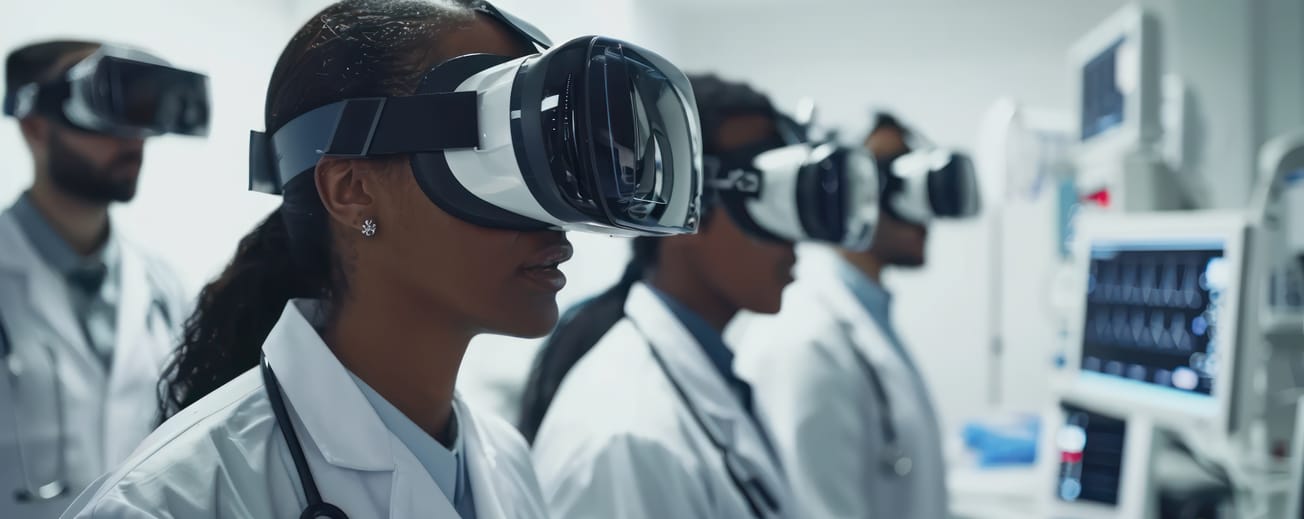In recent years, technology has been reshaping healthcare remarkably, leading to better patient outcomes, increased efficiency, and more accessible services. Let's dive into some of the most exciting new technologies and digital advancements making a massive difference in people's lives.
Telemedicine and Remote Monitoring
If you've used telemedicine, you know it is a game changer. With a smartphone or computer, you can have a video consultation with your doctor from the comfort of your home. It was especially crucial during the pandemic, and it is a lifesaver for folks in rural or underserved areas who might not have easy access to healthcare.
Remote monitoring is another valuable development. Devices such as smartwatches and wearable sensors track heart rate, oxygen levels, and even glucose levels. A person with diabetes can use a glucose monitor (CGM) that sends blood sugar readings to his doctor. If his levels become dangerously high or low, the doctor gets an alert, potentially averting a severe health crisis. This real-time data means doctors can catch potential issues early and adjust treatment as needed, making healthcare more proactive rather than reactive.
Artificial Intelligence and Machine Learning
Artificial intelligence (AI) and machine learning (ML) are becoming healthcare heroes, helping doctors diagnose diseases more accurately and quickly. These technologies can analyze massive amounts of medical data, such as scans, pathology reports, and electronic health records, to find patterns that might be missed otherwise. For example, AI can analyze mammograms to spot early signs of cancer with remarkable accuracy.
Machine learning also aids in creating personalized treatment plans. By examining a patient's genetic information and medical history, these models predict how they might respond to different treatments. This customized approach is precious in oncology, where targeted therapies can significantly improve outcomes and reduce side effects.
Genomics and Precision Medicine
Revolutionizing how we treat disease, genomics, and precision medicine allows doctors to tailor treatments to an individual's genetic makeup. This approach is particularly impactful in cancer treatment. For example, traditional chemotherapy can be difficult for a woman diagnosed with breast cancer. With genetic testing, doctors can prescribe a targeted therapy to attack the cancer cells without damaging the healthy ones, leading to a quicker and less painful recovery. This tailored approach is especially impactful in oncology, where it can significantly impact outcomes and side effects.
Pharmacogenomics, a branch of precision medicine, studies how genetic differences affect drug responses. This means doctors can prescribe medications that are more likely to be effective and have fewer side effects, improving overall treatment outcomes.
Robotics and Minimally Invasive Surgery
Robotic-assisted surgery is another fascinating advancement. These robots help surgeons perform delicate operations with pin-point precision through tiny incisions, which means less scarring, reduced pain, and faster patient recovery. Minimally invasive techniques like laparoscopic and endoscopic surgeries also benefit from these advancements. They help patients recover faster and reduce hospital stays, lowering costs and improving the overall patient experience.
3D and Bioprinting
3D printing is revolutionizing healthcare by creating custom-fit prosthetics and implants. This technology ensures that medical devices are tailored to individual needs, improving their function and comfort.
Bioprinting is even more exciting. Like something from a science-fiction movie, scientists are working on printing living tissues and organs. While this technology is still in its early stages, the potential is enormous. Imagine a future where someone with a failing heart can receive a bioprinted organ customized for his body, eliminating the long wait for a donor match and potentially saving his life.
Blockchain and Health Data Security
As we know, data breaches are all too common in today’s world. Health data security is a huge concern in our digital age, and blockchain technology offers a promising solution. Blockchain can securely store and share health records, ensuring only authorized individuals can access your information. For instance, if a patient sees multiple specialists, blockchain can securely share their medical history among doctors, enhancing care coordination and improving health outcomes. Its decentralized nature makes it nearly impossible to alter or tamper with data.
Augmented Reality and Virtual Reality
Augmented reality (AR) and virtual reality (VR) are no longer just for gaming; they're making a significant impact in healthcare, too. AR can help surgeons by overlaying critical information in their field of vision during operations, enhancing precision and safety. For instance, during complex spinal surgery, a surgeon could use AR to see the patient's anatomy in 3D, right over the surgical site. This allows the doctor to navigate the surgery more accurately, reducing the risk of complications.
VR is also making waves, especially in medical training and patient therapy. Medical students can practice surgeries in a virtual environment, gaining experience without any risk to patients. It can also help patients cope with chronic pain and reduce medications by immersing themselves in relaxing virtual environments.
Digital Technology Close to Home
Locally, AtlantiCare embraces digital advancements as part of Vision 2030, a bold initiative with several goals, including technological improvements. In partnership with Oracle Health, AtlantiCare will enhance care by reducing paperwork, simplifying appointment scheduling, and providing patients with easier access to their health records. They will also streamline paperwork for clinicians, allowing them more time for patient care.
According to Jordan Ruch, CIO for AtlantiCare, "AtlantiCare's collaboration with Oracle Health and our Vision 2030 focus on integrating innovative technologies marks a significant advancement for healthcare in our region. The extensive implementation of Oracle Health products involves the deployment of 20 new major solutions and over 60 capabilities on a phased timeline, with foundational work already underway. One of the key objectives of this initiative is to lessen documentation burdens and optimize face-to-face interactions with our patients, with the ultimate goal of enhancing clinical excellence in our region."
The integration of cutting-edge technologies and digital advancements is revolutionizing healthcare, providing unprecedented opportunities to enhance and save lives. Innovations such as telemedicine, AI-driven diagnostics, and precision medicine are elevating the quality of care, broadening accessibility, and leading to better patient outcomes. As these technologies evolve and become embedded in everyday medical practices, their potential is limitless. From precise surgical techniques and advanced chronic disease management to personalized treatment plans, technology is poised to make a profound and lasting impact on our health and well-being.









